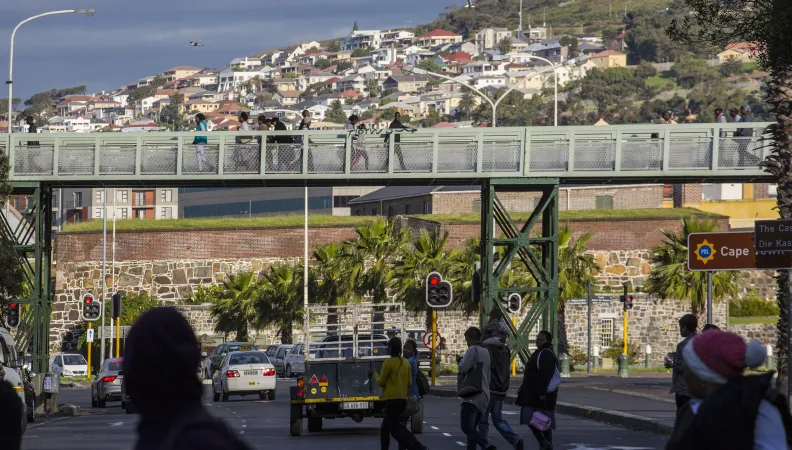Share the page
Challenges and opportunities for socio-spatial integration in Cape Town
Project


-
Project start date
-
Status
Completed
-
Project end date
-
-
Project duration
-
18 months
-
AFD financing amount
-
€ 31875
-
Country and region
-
Location
-
Cap Town
-
Type of financing
-
Beneficiaries
-
African Centre for Cities (ACC)
AFD supports the University of Cape Town to conduct a study to better understand the realities of socio-spatial integration in the city of Cape Town.
Context
Cape Town, South Africa’s second largest city is characterised by inefficient social and spatial fragmentation inherited from Apartheid. This is reinforced by low density urban sprawl and highly unequal land distribution patterns.
In its 2012 Spatial Development Framework, the City of Cape Town vowed to create an “inclusive, integrated and vibrant” city through densification and the provision of quality public transport. In line with these objectives, the City of Cape Town has identified two Integration Zones: 1) the Metro-South East Corridor Integration Zone (MSEIZ) and; the 2) Voortrekker Road Corridor Integration Zone (VRCIZ) as critical tools for the realisation of a more inclusive and integrated city.
Description
AFD has supported the University of Cape Town’s African Centre for Cities (ACC) to produce a study that would help gain better understanding of socio-spatial integration in Cape Town.
The study focused on the VRCIZ, a 19 km corridor connecting Cape town CBD to Belville. It specifically focused on the Western Area of the corridor (including Maitland, Kensington and Facreton) and its potential to bring about socio-spatial transformation.
The study consisted of in-depth interviews with residents living in informal settlements, backyards, formal rental housing, other role-players like developers and city officials, as well as commuters who travel into and through the VRCIZ.
Impacts
The study’s main findings were:
- General lack of understanding amongst respondents about what densification entails, as well as a resistance to the idea of densification when this was explained;
- Rental accommodation is prominent. Further infrastructure and transport investment will see an increase in residential property prices. This calls for careful consideration of the affordability levels of any future public housing provided to prevent possible displacement of poorer households from the three areas;
- Safety remains a significant issue;
- There is a need for better communication and “public participation protocols” in order to strengthen the voice of affected communities and ensure that they have a say in development processes which directly impact their lives;
- There is a need for housing affordability and the release and development of state-owned land in light of rising property prices.


